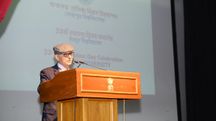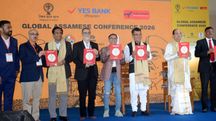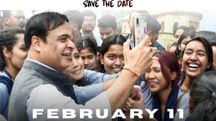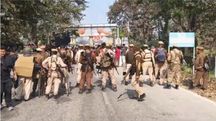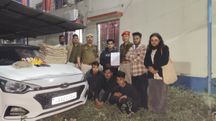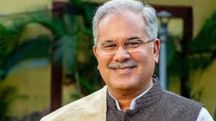EXCLUSIVE: Northeast Indian voices condemn curtailment on media freedoms on 'National Press Day'
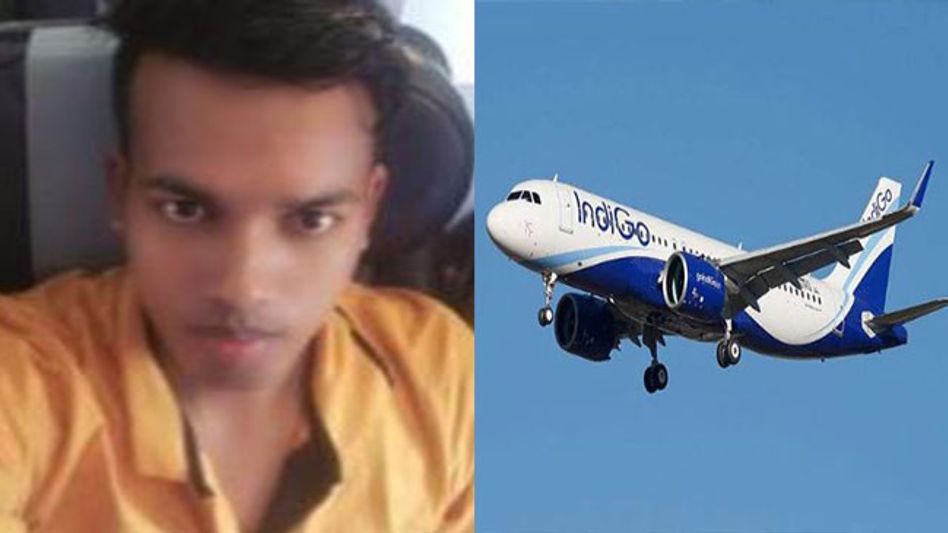 national press day
national press dayGUWAHATI: NATIONAL PRESS DAY was observed today amid fears of curtailment of press freedoms in India, where the Government has been accused of actively trying to gag dissident voices of the fourth pillar.
Amid the rise of populist figures such as Donald J Trump in the United States and Narendra Modi in India, attacks on the free and fair press have become the norm. There seems to be an active attempt to delegitimize the attempts of the press, with sections of the industry accusing the ruling dispensation of favoring its and stifling those critical of its policies and designs.
India's Northeast region, separated from the mainland by a chicken neck corridor, is no stranger to attacks on the press fraternity. Tensions have already begun to escalate following the "mysterious" death of 'Pratidin' group journalist Parag Bhuyan in Upper Assam's Tinsukia, which triggered protests across the state -- mainly from members of the press fraternity.
The death of Bhuyan, days before 'National Press Day', even elicited a reaction from Congress leader Rahul Gandhi, who hinted that the senior journo could have been "silenced" for reporting on BJP corruption.
NORTHEAST INDIA'S VOICES SPEAK OUT ON NATIONAL PRESS DAY:
Patricia Mukhim, a prominent journalist from Meghalaya and one of the strongest voices from the region, mourns that the media has been leashed in recent times. "Freedom of the press is under grave threat in the country today. Even though we have a lot of media sangathans, the journalist fraternity more divided than ever. It is too fragmented to fight a united battle against the threats it faces and there is no collective fight."
Mukhim, who is currently fighting a case in Court after a comment on social media, rues that journalists now have to minutely scrutinize their content to not "offend feelings." "Nowadays, we have to re-read what we write.
Under Article 19 (a), we enjoy the right to freedom under reasonable restrictions. But, when you report on scams and other illicit activities, they tend to shoot the messenger, which happens to be the press."
Media should not be connected to politics, but some sections of media have become spokespersons of the ruling party, Mukhim says. "This should not be case, as it makes lives diffiicult for genuine journalists who wish to present the truth in an objective manner."
Nitumoni Saikia from Assam, a journalist who has found himself in the crosshairs of the ruling party due to his criticisms leveled against the ruling Government, says that some sections of the media are responsible for this current predicament.
"I believe that the freedoms of the media have always been under threat. Freedoms are even more limited now as directly or indirectly, politicians are now owning shares in the media orgs. India's media has always had a slant. In Assam, for instance, the first media content was gung-ho in favour of British rule."
"The governments, the owners of channels and papers, and some journalists who take matters into their own hands are perhaps responsible for these current state of affairs. Some journalists treat their ID card as an ATM card. Over the years, many journalists have paid the heavy price and a question mark still lingers over the death of journos like Parag Das.
ALSO READ: Guwahati lawyer arrested for allegedly biting lady during Diwali 2020 celebrations
"However, the perpetrators of these crimes remain unpunished," Saikia says. "In all these cases, none of the perpetrators have been punished -- which speaks volumes about the state of press freedoms."
Monalisa Changkija, the Editor-in-Chief of Nagaland Page, a popular daily from Nagaland, opines that in the present scenario, journalists are being compelled not to report on serious issues because of "insidious" attempts to "divert the conversation."
"Actually, the media is nowadays is more focused on feel-good stories like handloom and other things. This, I believe, is because there is a concerted effort to divert the attention from serious issues -- like the conditions in prisons, rapes which go unreported, etc. Reporting on these issues is the actual purpose of the media, but various agencies are deliberately engaged in an attempt to stifle the voices," she told us.
To support our brand of fearless and investigative journalism, support us HERE.
Download:
The Inside Northeast app HERE for News, Views, and Reviews from Northeast India.
Do keep following us for news on-the-go. We deliver the Northeast.
Copyright©2026 Living Media India Limited. For reprint rights: Syndications Today

